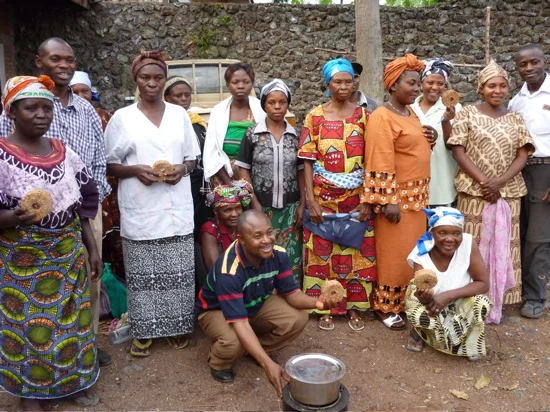APROSAF Midwives in Congo Fuel Lifesaving Rescues with Briquettes
/APROSAF midwives in Congo demonstrate unbelievable courage in trying to save women’s lives.Huffington Post has published a followup to Secretary of State Hillary Clinton’s visit to Congo.
Secretary Clinton wrote about the Mugunga Internally Displaced Persons Camp in Goma. The American press had little interest in covering the horrors Mrs. Clinton saw on her trip, preferring to focus on the infamous question directed to her in the equally-infamous Congo press conference.
Georgianne Nienaber shares details about a project between Virunga National Park and Association pour la Promotion de la Sage Femme, a group of 118 midwives who also act as community leaders.
The respect they garner results from selfless dedication as they transport pregnant women and rape victims, sometimes by carrying them on their backs, to get help. They do this without pay and subject themselves to rape and shootings along the way.
These unbelievably courageous women will receive $20 a month to establish a briquette business, converting refuse into fuel and then selling it for $.50 a sack. If the women repackage refuse, the trees won’t be cut down in Virunga Park, home to the last remaining mountain gorillas, but also a source of fuel.
APROSAF midwives will now sell briquettes to support their lifesaving efforts in the Congo.Only recently were residents of the camp allowed to cut down the trees, in order to provide some fuel for the camps. Environmentalists were outraged, but people must live, too. The refuse-briquettes are an alternative to charcoal.
Money from the briquettes will be used to build a clinic. It’s believed that $100,000 would finance the clinic, capable of saving an estimated seven lives a day — women rescued by the APROSAF midwives.
Briquettes: The Charcoal Alternative
There is hope that Secretary Cinton may include the grant in the $17 milliion she has committed to eastern DRC. Even if the money does come for this project, presumably another briquette-making business and clinic are needed elsewhere.
Meanwhile, Georgianne Nienaber gives us positive story about making some small improvements in a dire situation for the courageous women of the Congo. Anne






















































